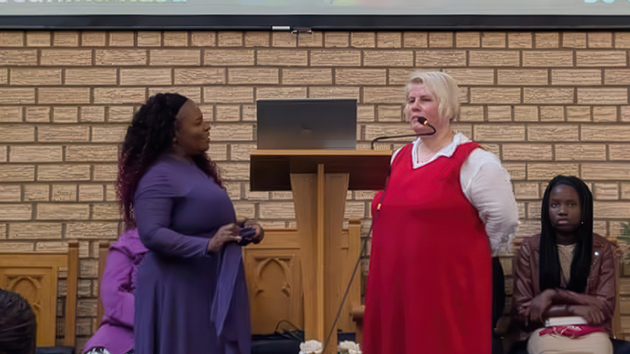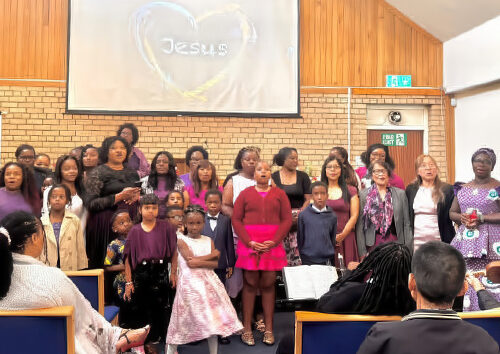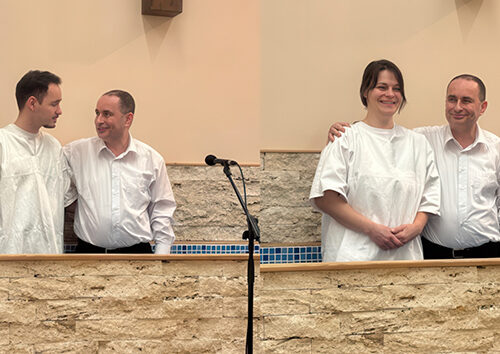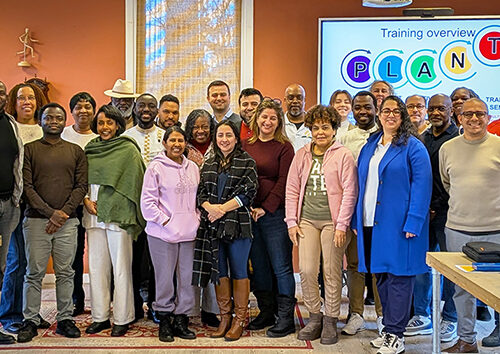5 September 2025 | Glasgow, Scotland [Blandine Damtse with tedNEWS]
On 30 August 2025, Glasgow Church marked the End It Now Emphasis Day, as the Women’s and Children’s Ministries united to confront abuse and trauma. The theme, “Where Do I Carry My Shame?”, inspired hope and healing. Organised by pastor-in-training Geanina Diaconu and supported by the ministries, the day featured inspiring teaching, uplifting worship, interactive workshops, and heartfelt messages, leaving a lasting impact on all attendees.
Both women and children took leading roles in the special Sabbath service, from platform participation to leading the singing. A highlight of the programme was their moving rendition of God Loves the Little Sparrow, a meditative song that gently reminded the children that God loves them, no matter how small.
The Children’s Story, based on Psalm 139:14, set the tone for the day. Diaconu taught children to value themselves as God’s creations and to protect their bodies. Through interactive lessons and a body diagram worksheet, they learned about self-worth, recognising safe and unsafe touches, and reporting concerns to trusted adults.
During her sermon, Diaconu passionately reminded the congregation that safeguarding is everyone’s responsibility. “It’s hard to link trauma to the church, because it should be a place where children feel safe,” she said.

End It Now Emphasis Day at Glasgow Church focused on safeguarding, raising awareness about abuse, promoting self-protection, and empowering women and children to seek justice and healing.
Reflecting on Tamar’s story in 2 Samuel 13, Diaconu highlighted how Amnon abused Tamar, Absalom remained silent, and King David ignored her pain. Tamar’s cry, “Where do I carry my shame?” reminded the church that every victim’s voice matters. She urged the congregation to respond with courage and justice, reflecting Christ rather than repeating these failures. Drawing on Hebrews 12:2, she encouraged breaking the silence, promoting justice, and guiding victims to the cross, where Jesus has already borne every shame. Diaconu concluded with a call for the church to be a place of healing and hope — listening, acting, and bearing one another’s burdens, as stated in Galatians 6:2.
The afternoon workshop explored the harsh reality of abuse in Scotland. Psychologist Carmen Slobozeanu provided insights into trauma, while lecturer Semone Pollard explained the impact of Adverse Childhood Experiences (ACEs) on overall wellbeing. Pollard noted that a 2014 UK study found 47% of participants had experienced at least one ACE, and 9% had experienced more than four. The interactive session focused on SHANARRI, the Scottish Government’s eight wellbeing indicators for children: Safe, Healthy, Achieving, Nurtured, Active, Respected, Responsible, and Included. Attendees then worked in groups to explore how the church can support families affected by ACEs, develop resilience, and connect each indicator with Scripture.
Glasgow Church’s Women’s Ministries leader, Milliam Kasowanjete, who is also a social worker, emphasised the importance of taking action and addressing abuse rather than remaining silent. She highlighted key services that support victims in their recovery, including Police Scotland, Social Services, and Victim Support Scotland.
The programme concluded with an inspiring session led by Diaconu, who examined the historical response of the UK Christian church to abuse and trauma. She commended safeguarding policies, reporting procedures, and risk management efforts, but noted that transparency, consistency, and aspects of clerical culture still require improvement.
This article was originally published by the Scottish Mission of Seventh-day Adventists.
[Photos: courtesy of Blandine Damtse and Inga Ntiamoah].



